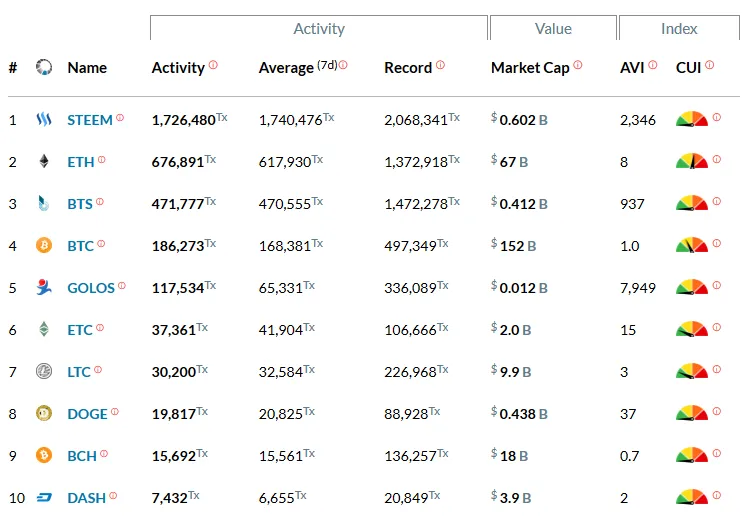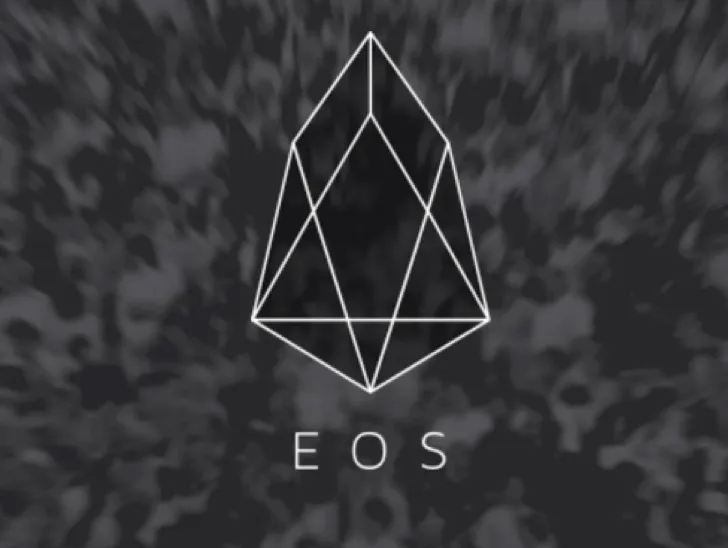Last Week Tonight host John Oliver recently made a cryptocurrencies and blockchain focused video and had a few things to say about the EOS project from block.one. But there are a few key things John and his research team forgot to tell you about EOS. Before I mention what those things are let me just give you my brief perspective on John Oliver.
I love John Oliver. He is a brilliant satirist and as a part-time satirist myself I have always enjoyed his work. In fact John's buddy Stephen Colbert is mentioned in my satire website Total Nonsense News' Editor's Note. When I wrote it I had to choose between John and Stephen. I chose Stephen because despite delivering several outstanding episodes and satire sketches every once in a while John tends to miss out on reporting key facts.
This is important to mention because I have always felt that John's work on Last Week Tonight is an attempt at offering a critique of serious issues using satire. While Colbert's approach is to simply mock the living daylights out of his subjects with little focus on facts. I like both approaches but as someone who has been writing satire myself I have always felt that if you are going to take the John Oliver approach you have an added responsibility of not fucking up with your research precisely because you are trying to tackle serious issues in a satirical format.
So in this 25 minute long episode titled "Cryptocurrencies" John Oliver tries to offer a fair and honest critique of the crypto space. I have to say that when talking about the overall scams in the crypto space and considering the fact that this is a satire show, John did pretty well. His observations about cryptocurrency scams and the many weird crypto projects are spot on. And the bit about Bitconnect.. well how could you not talk about Bitconnect? If I was writing that episode I would have certainly added two more minutes of Bitconnect to the show. That was hillarious and bang on the money.
The full episode is linked here if you would like to see it.
And then John moved to EOS, block.one, and Brock Pierce. He pointed out that block.one has raised over 1.5 billion dollars. He also quotes The Wall Street Journal piece in which WSJ describe block.one as a software company that plans to sell no software and its digital tokens as having "no purpose". John then goes on to point out that EOS hasn't even launched yet and you just have to take their (block.one's) word for it.
All of these points are true except there is more to it then perhaps John's team and John himself are capable of grasping. Sorry, John, I wasn't aware that you had a background in asymmetric cryptography and distributed consensus algorithms - you know, the fancy computer terms.
At this point LWT starts playing some Brock Pierce clips and attempt to portray Pierce as the face of EOS. This is when things derailed in what was up to that point, in my view, a very fun episode.
The problem here is that while words like "bitcoin", "blockchain", and "cryptocurrencies" have got a lot of attention in the mainstream media, especially over the last 12 months or so, the philosophical, political, and even ideological concepts of decentralization, distributed governance mechanisms, and the many aspects of token tech have not gotten as much mainstream attention as we in the crypto community would like.
This is precisely why someone like John Oliver or the WSJ are not able to accurately point out exactly what companies like block.one are trying to do.

John Oliver forgot to tell you that:
The rules and regulations around the entire crypto space are so incredibly vague that in my view companies like block.one just have to make statements like - the tokens "do not have any rights, uses, purpose, attributes, functionalities or features." Just because governments and regulators are slow to learn new technology, entrepreneurs and innovators cannot be expected to sit on their bums and wait for those jolly old folks to understand what's good!
So if the United States is going to take 3 years to form innovation friendly regulations around an entire industry then the next Steve Wozniaks and Bill Gates have no choice but to move outside unfriendly regulatory environments and issue statements that may appear to some people as vague. If you asked me, regulators around the world are more vague on crypto then block.one's "no purpose" tokens.
EOS has already launched its testnet and developers are already using the testnet to build their projects on top of the EOS platform. EOSindex.io lists the current projects and the various stages they are in. So to imply that because the EOS mainnet hasn't launched yet, the entire EOS platform itself is vaporware is simply not true, John. You don't have to take block.one's word for it. You can already find several third parties mentioned on EOSindex that are utilizing the EOS platform. The fact that there are serious projects and teams eager to get the early mover advantage on the EOS platform by working on the testnet is actually evidence that contradicts John Oliver's remarks.
Brock Pierce sounds like a fun but weird dude. I have heard people describe me as weird - because I use Physics as a framework for solving life's problems or because I think video games and books are fucking awesome - so I totally understand why someone who looks (the cowboy hats are alright IMO) and sounds a little different then what conventional wisdom would suggest is taken to be a weirdo. Personally, I like what Brock is doing in the crypto space but I am not a fan and Brock Pierce is certainly not the first name that comes to my mind when someone says EOS.
We are on the Steem blockchain. Ask yourself what is the first name that came to people's mind when you heard Steem or Steemit when it first launched? What is the first name that comes to your mind when you hear EOS? If you are a company exploring whether or not you should choose EOS over Ethereum for your project at the moment, what is the first name that comes to your mind? If you are a respectable media outlet and you want to learn and talk about EOS, what name would show up in your "serious research" who can give you an accurate picture of EOS?
For me and for most people I know, the answer to all of those questions is Dan Larimer.
You would think John Oliver's team would know that anyone who deserves to be the face of EOS are the people who are building EOS and that's Dan Larimer, Brendan Blumer, and their block.one development team. So why would John Oliver and LWT focus on Brock instead of Dan when talking about EOS? I don't think there is a conspiracy theory here though I would like to hear what people reading this have to say about that.
To my mind the answer is rather simple but worth mentioning. If you are doing a satire piece on something you would choose a colorful personality willing to say supposedly weird things in public and willing to be misunderstood over a freaking genius whose technical language and measured words are surely not the perfect fit for a satire piece. No disrespect to Brock but personally, I prefer listening to Dan Larimer, Vitalik Buterin, and Nick Szabo over Brock Pierce any day. And anyone interested in actually learning how the crypto space truly works should be listening to computer scientists like Szabo and innovators like Vitalik, Dan etc.
By choosing not to focus on Dan, John Oliver chose to omit several key facts and rendered what was a good episode useless through sloppy research and even sloppier presentation of the EOS project.
If you are new to the crypto space or the Steem blockchain and don't know enough about Dan Larimer, here are a few facts that John Oliver would have had to include in his episode had he chosen to talk about Dan.
Dan Larimer was one of the two key people behind BitShares, which was a disruptive concept for its time as the first real attempt at a truly decentralized asset exchange (think decentralized NYSE).
Dan Larimer was one of the two key people behind Steemit and the technical brain behind the Steem blockchain. We have all heard about the potential of blockchain technology but how many people have built highly scalable blockchains? I will give you a hint: it's not my former employers IBM or Microsoft - the two tech giants who are involved in the blockchain space, so to speak. Okay that wasn't much of a hint so I will come right to the point. Steem is by far the most successful blockchain ever.
Just how successful is Steem? Well if you combined the number of transactions in a 24 hour period on the two most famous blockchains - the bitcoin blockchain and the ethereum blockchain and multiplied that sum by 2 you would get (slightly more) then the number of transactions on the Steem blockchain in the same period. And there are a ton of other statistics you can explore on your own on Blocktivity.

Screenshot from Blocktivity
Talking about Dan would have taken away from the underlying theme of the LWT cryptocurrency episode. The underlying theme of the episode wasn't a careful examination of cryptocurrencies. Rather, it was an attempt at discrediting cryptocurrencies at any cost because that would appeal to their audience at the moment. I say at the moment because looking at the way EOS is progressing on the technical front I have a feeling this episode would end up making John Oliver and his research team or his writers look incredibly out of sync with the current trends in technology.
Also, John, why would you even begin to compare Google Glass, a niche product, with the crypto space - a collection of technologies that cross over to many industries?
Perhaps, you need a better informed satirist on your team, John. I am free this upcoming weekend. #JustSayin

Check out my previous posts:
If you like my work kindly upvote, resteem it to your friends, and follow me - @shikharsri
